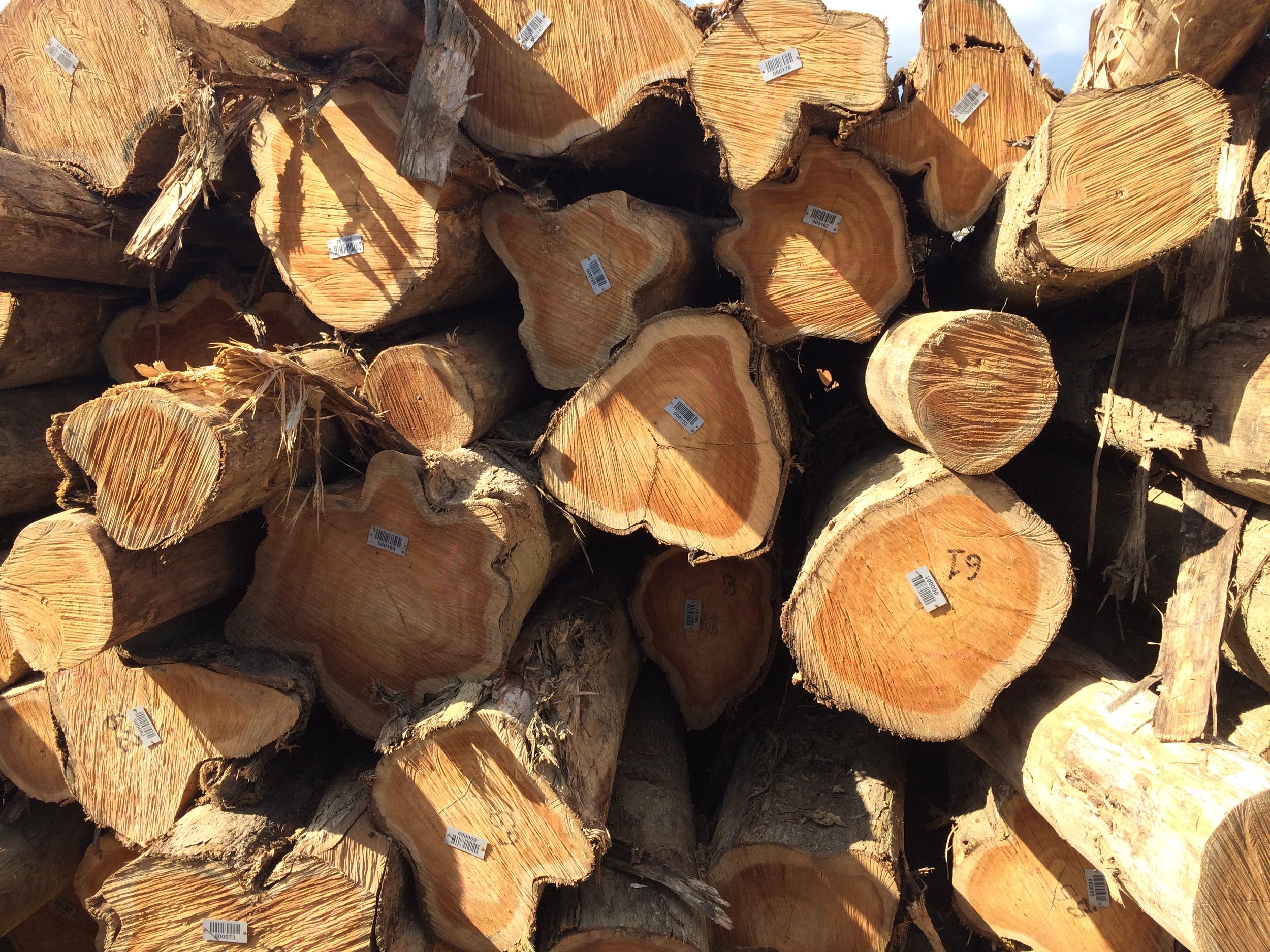
Plantation Teak supports responsible sourcing
In today's world, addressing climate change is crucial. Making small changes to our habits can limit its impact and help the planet recover. The current rate of global deforestation is a considerable contributing factor to climate change. In particular deforestation in the Amazon region has reached its highest level in 20 years, and harmful logging has spread to the heart of the rainforest itself
Fewer trees means that the rainforest’s ability to store enormous amounts of carbon is reduced. It is therefore imperative that an alternative, sustainable source of hardwood is established to lessen the reliance on indigenous tropical hardwoods as well as to protect the rainforests and the climate itself for future generations.
As a responsible lumber company, Coeden Timber produces all of its Teak (Tectona Grandis) wood products from its managed plantations in Northern Brazil. By design, our plantation teak is grown from seed and managed for long term sustainability. This ensures that Coeden Timber can supply its products as an alternative to felling indigenous tropical hardwood forests in the Amazon, to help combat deforestation.
Through proper and comprehensive documentation, all material sold by Coeden Timber is consistent with the UK Timber Regulations (UKTR), European Union Timber Regulations (EUTR) 2013 as well as the Lacey Act in the United States of America.
The Forest Stewardship Council (FSC) and Sustainable Forestry Management
FSC offers certification of sustainably grown and harvested teak products. The FSC is an international non-profit, multistakeholder organisation established in 1993 that promotes responsible management of the world's forests via timber certification.
The ten principles for good forest management form the basis for the FSC® standards. These principles focus on a balanced weighting of interests in the environment, social, and economic considerations. The FSC® mark of responsible forestry allows forest owners who adhere to the agreements to distinguish themselves.
Coeden Timber Limited is audited by EnviAudits Limited. The fact that Coeden Timber Limited is a member of EnviAudits’ FSC® Chain of Custody Group Scheme (Certificate number INT-COC-005535.491) means that we keep FSC® certified wood products separate from the other products, both administratively and in practice.
The FSC® logo makes our certified products recognisable to our customers, and to their customers. For more information about FSC® certification, please visit www.fsc.org.
If requiring FSC® certified products, please contact us for details.
Plantation Teak is Positively Addressing Climate Change
Plantation Teak plays a crucial role in carbon storage. Through photosynthesis, teak trees absorb carbon dioxide from the atmosphere, storing carbon within their trunks and roots.
This process helps offset carbon emissions, mitigating the impact of global warming. By cultivating teak in sustainable plantations, we not only secure a renewable source of timber but also contribute to the fight against climate change.
One hundred Teak trees harvested from one of our sustainable plantations would produce approximately 22.39m3 of high-quality finished flooring product. This estimate factors in the saw and planing losses during the processing stages, ensuring optimal utilization of the timber resources.
The production of 22.39m3 of premium teak flooring holds great significance beyond its aesthetic and functional value. Not only does it promise durability and elegance for your space, but it also serves as a silent warrior in the battle against climate change. By capturing a remarkable 28,404 kilograms of carbon dioxide (CO2) and locking it within its fibers, Teak products act as a guardian of our atmosphere, steadily reducing harmful emissions and contributing to the mitigation of global warming effects throughout its lifespan.
When examining Teak in comparison to commonly used manufacturing materials like Aluminum, Concrete, Plastic and Steel, it is evident that Teak's carbon dioxide absorption rate contributes significantly to its positive environmental impact. This starkly contrasts with the detrimental carbon dioxide emissions associated with the production of the same volume (22.39m3) of the other materials.
As consumers become ever more aware of the environmental impact their own lives are having on the planet, offsetting one's carbon footprint is crucial. For instance, an average mid-range family car emits approximately 73.899 grams of carbon dioxide per mile driven. Similarly, to generate the necessary electricity to power a family home for a year, a power station will release about 900 kilograms of carbon dioxide into the environment. It's essential to consider these factors when aiming to reduce our ecological impact.
Installing Teak flooring into the lounge (12 ft x 18 ft) of an average family home would require approximately 20.5m2 or 0.409m3 of product. As the Teak flooring is put in place, it stores 500.155 kilograms of carbon dioxide, which has been absorbed directly from the atmosphere into its structure. This carbon capture is significant, offsetting emissions equivalent to either 2,636 miles of motoring in the family car or powering the home itself for 6 months with electricity.
Utilising Teak in daily environments showcases the beneficial impact it has on reducing carbon footprints and contributing positively towards addressing climate change.



